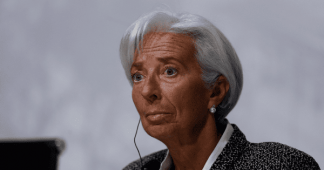The climate crisis is here; it’s prime time for the pause clause
By June 1, 2023
For climate change vulnerable nations such as Pakistan, Fiji, Sri Lanka, and Barbados, the threat of natural disaster is a constant reality that requires swift action, forward thinking, and practical solutions.
Not only have these countries contributed almost nothing to the climate crisis, a crisis created by the Global North, but it also so happens that these countries aren’t exactly swimming in spare cash.
So when disasters do happen — from pandemics to climate change induced food shortages — there’s very little wiggle room to find cash to respond to them, let alone put money aside “just in case.”
A big reason for this is debt. Instead of spending money on public services, low-income countries are having to cough up steep debt repayments. In fact, those repayments are currently at their highest level in 25 years.
“Debt payments are reaching crisis levels in many countries,” said Heidi Chow, Executive Director of Debt Justice, “hindering the ability of governments to provide public services, fight the climate crisis, and respond to economic turmoil.”
As climate change intensifies and brings with it more ferocious and more frequent extreme weather events, countries need more money to respond and recover from these disasters — which means more borrowing, and more debt.
Prime Minister Mia Mottley of Barbados — champion of the Bridgetown Initiative — is a leader in highlighting how natural disasters are pushing certain Caribbean countries further and further into debt distress.
So what can be done about it? Enter: debt pause clauses. Not the sexiest name, we know, but they’re a powerful tool. Here’s what you need to know.
What is a debt pause clause?
When disaster strikes, countries at the moment have to keep repaying their existing debt while also accumulating even more debt by borrowing the money they need to respond to the disaster — which prevents them from bouncing back.
Debt pause clauses (or debt suspension clauses) offer a way to temporarily halt debt repayments, enabling the borrower to stop repaying debt temporarily for a pre-agreed period when a predefined event hits, such as a violent storm, severe flooding, or even a pandemic.
Debt pauses clauses would thereby free up money to help countries respond to and withstand these events.
What is a debt crisis?
A debt crisis, according to Debt Justice, is any situation where debt is leading to human rights being denied, or even being put ahead of life itself.
Which countries are in a debt crisis?
Debt Justice estimates that people in 54 countries — including Haiti, Mozambique, and Pakistan — are currently living in debt crisis.
Many countries in the Global South were already in or near debt crisis before the COVID-19 pandemic began, but the economic impacts of the crisis have made the situation far worse.
Sri Lanka, for example, has the highest external debt payments of any country this year, amounting to an astonishing 75% of all government revenue.
Who are the lenders?
The bulk of payments go to domestic lenders like local banks but about a sixth goes to international lenders, institutions like the World Bank or creditors like Japan and France.
Why can’t they just default on the debt?
Defaulting on debt would free up money but it isn’t a free lunch. Negotiation with creditors is messy, expensive, and drawn out. What’s more, defaulters are frozen out of international markets and pay more to borrow when they are let back in.
Why are these countries in debt in the first place?
From fighting wars to coping with food shortages, countries get into debt for a multitude of reasons — and the thing about debt is that it’s hard to get out of once you’re in it.
Let’s look at an example.
In 1804, the Haitian Revolution gained Haitians independence from France. The French government demanded compensation for the loss of their property and slaves and forced Haiti to pay millions of gold francs over the following decades.
The debt was so large, and so lasting, that it would help cement Haiti’s path to poverty and underdevelopment. If that money had remained in Haiti, rather than being shipped off to France, it would have added $21 billion to Haiti’s economy over the last two centuries.
By 1911, $2.53 out of every $3 that Haiti earned from coffee taxes, its most important source of revenue, went to paying debts held by French investors.
In January 2010, a devastating earthquake struck Haiti killing up to 300,000 people. In the aftermath, it seemed that the state might collapse. Survivors were left vulnerable to disease and without homes or livelihoods. Haiti’s debt rose to $1.3 billion as new loans were given in an attempt to cope with the disaster.
Not long after, a group of Haitian NGOs called for debt cancellation. This message was taken up around the globe with hundreds of thousands of people signing petitions. The public outcry led governments and the international financial institutions to drop Haiti’s outstanding debt.
What can be done?
You guessed it: debt pause clauses.
It’s important to note that debt pause clauses wouldn’t apply to existing debt so they won’t solve existing debt crises and they’re not a silver bullet solution — but what they would importantly do is ensure the existing problem doesn’t get worse when countries face a new disaster.
They would give low-income nations more flexibility in coping with disasters — enabling nations to pause their debt payments in favor of using that money to instead respond to the disaster.
Pause clauses aren’t, however, a solution for countries already in debt distress today as they can’t apply to existing loan agreements. That’s why they’re just one important part of a bigger puzzle to solve the global debt crisis, which requires a wider package of financial reforms. Pause clauses are, however, a great place to start in reforming an 80-year-old global financial system.
Calls have been ramping up in the past year for the world’s financial institutions — including the World Bank — to adopt debt pause clauses. The World Bank is one of the world’s largest lenders and is currently owed $230 billion in loans. It also has the power to push through reform on debt.
Campaigners and advocates are hopeful that the adoption of debt pause clauses will be a significant outcome of the upcoming Summit for a New Global Financial Pact, hosted in June by Emmanuel Macron, President of the French Republic, in Paris.
We remind our readers that publication of articles on our site does not mean that we agree with what is written. Our policy is to publish anything which we consider of interest, so as to assist our readers in forming their opinions. Sometimes we even publish articles with which we totally disagree, since we believe it is important for our readers to be informed on as wide a spectrum of views as possible.











